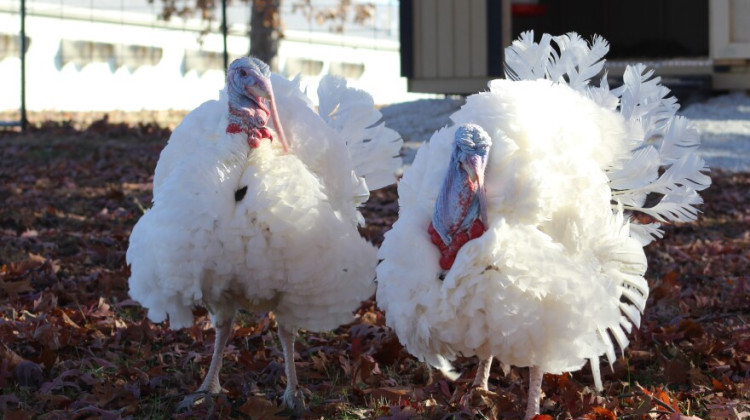
An Indiana turkey flock has been found with avian influenza, the first recorded case in almost a year.
Ben Thorp / WFYIA flock of turkeys in eastern Indiana has tested positive for H5N1 or bird flu.
The farm, in Jay County on the border of Ohio, is the first positive case in the state since February of 2024.
The flock, consisting of some 20,000 birds, has been culled according to officials, and the commercial turkey operation has been quarantined and portions of Jay and Adams counties are under surveillance.
This means no poultry would be allowed on site until the place is cleaned, disinfected and environmental testing is done to ensure there is no virus in the barns.
Farmers can partially recoup funds from the loss through a program with the U.S. Department of Agriculture.
The Indiana State Board of Animal Health has described the current bird flu outbreak as the country’s “largest animal health emergency in history.”
Bird flu has been found in flocks across all 50 states since February of 2022.
But recently, concerns about the virus have been mounting. Last year, bird flu was found in dairy cattle for the first time. So far, over 900 cattle herds have been impacted across 16 states. So far, the virus has not been found in Indiana cattle, according to state officials.
California, which has seen a high number of infected herds, declared a state of emergency in December due to bird flu infections in its dairy cattle.
Scientists have raised concerns that unchecked spread among cows could potentially make the virus contagious –– and deadly –– in humans.
On Jan. 6, a Louisiana resident became the first person to die of bird flu in the U.S. The individual was reportedly older with underlying medical conditions and was exposed to the virus through contaminated wild birds in the his backyard.
Still, the U.S. Centers for Disease Control and Prevention says the risk to the public from the virus is considered to be low. The USDA maintains that the pasteurization process neutralizes the bird flu virus in milk, and the CDC has warned against drinking raw milk.
The CDC recommends cooking eggs, poultry, and beef to the appropriate internal temperatures in order to kill any live bacteria or viruses, including bird flu.
Indiana is the fourth largest state for turkey production in the U.S., with roughly 20 million birds.
Benjamin Thorp is a health reporter at WFYI and Side Effects Public Media. You can contact him at bthorp@wfyi.org.
 DONATE
DONATE






 Support WFYI. We can't do it without you.
Support WFYI. We can't do it without you.